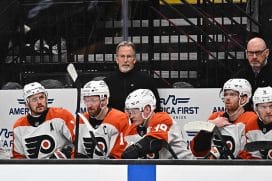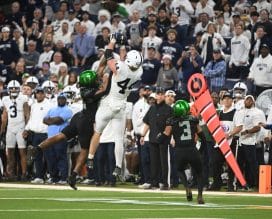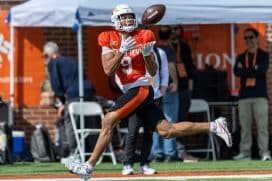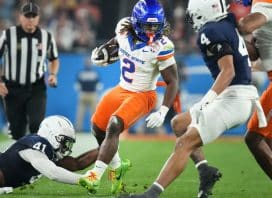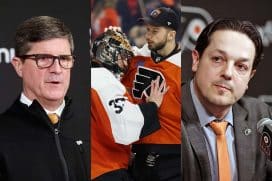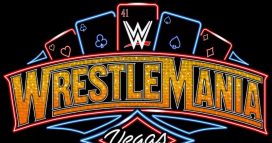Phillies
Jim Bunning: Respected Congressman, Phillies Wall of Famer and Baseball Hall of Famer
By: Matt Alberston, Historical Columnist
The nice thing about visiting a cigar shop is that you can find a few retirees passionate about sports and baseball in particular. The past two days I've visited my local shop and asked a few men about Jim Bunning, who passed away late Friday night at the age of 85, after battling health complications for several months.
A retired Philadelphia suburb middle school teacher told me that during a school trip to Washington D.C., he and a few other teachers wandered around the Capitol premises and saw a group of kids from Kentucky sitting on the steps in front of the Capitol building. They asked the kids what they were doing, to which they replied they were waiting to meet their Representative. "Who's your Representative?" the teachers asked. "Mr. Bunning," they said. As Bunning met with the kids, the teachers asked a Bunning aid if they could get a picture taken with the Congressman, to which she obliged. They also said "Hey, you know it's the day before the anniversary of his perfect game." The aid smirked and answered, "Oh, we know, we know." Jim Bunning is best known for the perfect game he hurled against the New York Mets on Father's Day 1964 at Shea Stadium.
The anecdote shows that while Bunning admirably served Kentucky and the United States as first a Representative and later a Senator, that he held his incredible accomplishment close to his heart. And with good reason; it was the first perfect game (and seventh overall) thrown in the National League since John Montgomery Ward hurled one in 1880, the first in the regular season in either league since 1922, and the first overall since Don Larson's perfecto in the 1956 World Series.
Bunning was born in Southgate, Kentucky in 1931 and attended Xavier University in nearby Cincinnati, Ohio. Bunning was signed by the Detroit Tigers in 1950 and spent his first four professional seasons in the Tigers' minor league system. He was permitted to continue his studies during the spring semester each year until he earned his degree, graduating from Xavier in 1953 with a degree in Economics. He debuted in the majors in 1955 and appeared in 30 major league games between 1955 and 1956, before becoming a full-time major leaguer in 1956.
While in the minors, the Tigers tried to change his natural sidearm delivery to an overhand delivery so he could field his position better. Unfortunately, the mechanics lessened his effectiveness on the mound and Bunning returned to his natural sidearm delivery. It certainly helped, as Bunning went 20-8 with a 2.69 ERA in 267.1 innings pitched. He was the starting pitcher in the 1957 All-Star game and retired all nine batters he faced, earning him the win. He made four more All-Star appearances with Detroit between 1958 and 1963. At the end of the 1963 season, after going 12-13 with a 3.88 ERA and entering his age 32 season, the Tigers determined Bunning was expendable and near the end of the line. They needed outfield help and the Giants, Twins, and Phillies expressed interest. On December 5, 1963, the Tigers traded Bunning and catcher Gus Triandos to the Phillies for outfielder Don Demeter pitcher Jack Hamilton. The addition of Bunning added another bonafide starter to a rotation that included Chris Short and Art Mahaffey.
Top 25 Phillies of All-Time: No. 14, Jim Bunning
The Phillies were on the rise in 1964, finishing the previous two seasons above .500 after a disastrous 47-107 campaign in 1961. Bunning went 19-10 with a 2.63 ERA in 1964 for a surprise Phillies team that is now infamous in Philadelphia sports history for their untimely September swoon. In six years with the Phillies (1964-1968, 1970-71), Bunning compiled an 89-73 record and a 2.93 ERA. He was also the Phillies union representative and won his teammates a few perks, such as free parking for home games and the right to bring wives on some road trips. In 1965, he was part of the committee that hired Marvin Miller as the union's executive director. Miller was later responsible for overthrowing the draconian century-old reserve rule and the implementation of free agency in baseball.
After his playing career ended in 1971, he managed in the Phillies minor league system and eventually won election to the House of Representatives in 1986 and to the Senate in 1998. In 1996 he was elected to the National Baseball Hall of Fame by the Veterans Committee.
Larry Bowa credited Bunning with reinforcing his passion for the game and how to carry himself on the field regardless of his performance at the plate. "Spring training, he said 'Keep your mouth shut and your eyes and ears open. It's that simple.'" Bowa also commented that Bunning was a fierce competitor. "As good a competitor as he was, and I saw him at the end of his career, I don't even want to think about what he was like in his prime. He was mean." Bowa recalled a situation in 1970 when Bunning faced the Expos' Ron Hunt. "Bunning threw him a sidearm curveball, Hunt never moved, and it hit him. The ball rolled toward the mound, and Bunning picked it up. He looked right at Hunt and said, 'Ron, you want to get hit? I'll hit you next time.' And next time up, bam. Fastball. Drilled him in the ribs. and he said to Hunt, 'O.K., now you can go to first base."
Bunning carried his fierce attitude with him to the Capitol in Washington D.C. He lost the support of Senate minority leader Mitch McConnel later in his political career and in 2009 the New York Times asked him if he felt betrayed by his colleagues. "When you've dealt with Ted Williams and Mickey Mantle and Yogi Berra and Stan Musial, the people I'm dealing with are kind of down the scale." He was a staunch conservative who stood his ground on issues close to his core and defended his beliefs adamantly. Neither the hallowed halls of Congress or his seat, occupied by 19th century political titan Henry Clay, made Bunning nervous. This was never more evident in his farewell address to the Senate in 2010:
"I have been booed by 60,000 fans at Yankee Stadium standing alone at the pitcher's mound, so I have never really cared if I stood alone here in Congress as long as I stood by my beliefs and my values…I have also thought that being able to throw a curveball never was a bad skill for a politician to have."
